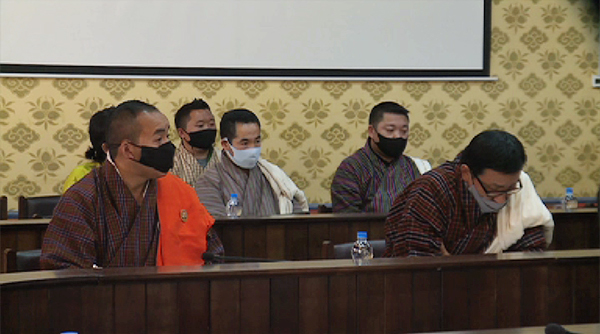 On average, over 78 per cent of the Bhutanese are attributed to not using the products and services of the Dzongkha Development Commission (DDC) at all. Among many products, Dzongkha terminology book, and competency and spelling test have been reported least used according to the Dzongkha Language Usage Survey, 2020.
On average, over 78 per cent of the Bhutanese are attributed to not using the products and services of the Dzongkha Development Commission (DDC) at all. Among many products, Dzongkha terminology book, and competency and spelling test have been reported least used according to the Dzongkha Language Usage Survey, 2020.
In order to promote the usage and development of Dzongkha in the country, the DDC over the years has been putting concerted efforts through publications of a number of products and services both online and offline. The study was conducted to find out how people make use of the publications of the DDC.
Among the number of products being used, dictionaries have been attributed as mostly used in comparison to other products and services. On average among the frequency rating, English-Dzongkha dictionary has been used more followed by Dzongkha-English dictionary and Dzongkha-Dzongkha dictionary.
“When we asked the respondents about why they don’t use our services and products, few of them say that they don’t have any idea about the existence of such materials, some feel that there is no need for them to use those materials and some have no interest in using it because they are more inclined to English,” said Karma Gyeltshen, the Project Coordinator of the DDC.
He added that for the products and services to be used, usage of Dzongkha language is the only solutions. For now, English is widely used in almost all situations.
“We are putting extra efforts for people to use our products and services, while sometimes we inform them, other times, we come up with plans and policy and inform people through other media,” he added.
Among the top three products being used by the general public, a further assessment was done to understand its usage by major occupations. The English-Dzongkha dictionary, the most used product is by majority used by students followed by teachers, lecturers and others. The Dzongkha-English dictionary was also used by teachers and lecturers who happen to be the highest users of this product as compared to other occupational groups. This was followed by students and corporate employees.
The commission added that the usage of Dzongkha however has increased over the years.
As per the commission, these findings under the study is provisional. The final study will be presented during the next commission’s meeting.
Samten Dolkar






